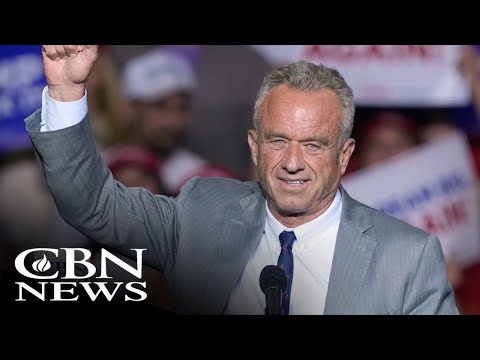The recent nomination of Robert F. Kennedy Jr. for the position of Secretary of Health and Human Services under President-elect Trump has raised significant discussion among those who value health, faith, and morality. The movement entitled “Make America Healthy Again” has emerged as a focal point for many, advocating for changes that could affect every American’s lifestyle and well-being. This initiative is particularly appealing to those in the evangelical community who often stress the importance of caring for the body as a temple, as mentioned in scripture.
At the heart of this movement is the alarming statistic that 93 percent of American adults suffer from metabolic dysfunction. This crisis is attributed to a toxic food system and lifestyle choices that have shifted dramatically over the past several decades. Individuals are becoming increasingly aware that many prevalent diseases can be tied to these poor dietary habits. With food being a central element of life and community, the evangelical emphasis on wholesome living intersects deeply with the health concerns being raised. It reflects a call to renew a commitment to healthy eating and lifestyle choices, which aligns with faith-based principles of stewardship over one’s body.
The agenda outlined by Kennedy and his team proposes to rid health agencies of conflicts of interest, promote research that is free of pharmaceutical influence, and tackle the chronic disease epidemic head-on. This aligns well with the values of the evangelical community, which often champions accountability and integrity in health and public policy. A move to combat the systemic issues related to food additives and unhealthy options in the marketplace represents a moral imperative to safeguard the health of families and communities, encouraging a return to more natural and accessible food sources.
One of the most significant changes proposed involves addressing the multitude of unapproved and potentially harmful additives allowed in food products. The emphasis is on transparency and safety, resonating with a growing desire among Americans to know what they are consuming. For Christians, this is a matter of honoring God by taking care of the bodies they have been given. When discussing diets and nutrition, it becomes crucial to focus not just on individual choices but also on the broader societal implications of food policy. A generation that is empowered with information about their food supply can make choices that reflect their values.
Engagement in this new health initiative also highlights a larger call for prayer and fasting among the faithful. As Kennedy faces confirmation hearings, it will be essential for believers to seek divine guidance and support for these reforms. Many in the evangelical community feel that the spiritual aspect of health is often overlooked. They believe that prayer can play a pivotal role in influencing the direction of health policies that significantly impact families and communities. Through this lens, the health of the nation is not just a political issue; it is also a spiritual and moral one that demands collective action.
Furthermore, the discussion surrounding food affordability in relation to health is particularly pressing. Many families struggle to afford healthy options, often gravitating towards more affordable, processed options that lack nutritional value. Addressing this disparity is essential to promoting health equity and ensuring all individuals have access to wholesome food choices. This issue underscores the evangelical commitment to caring for the marginalized and promoting social justice, pair it with efforts to reform health policies. In doing so, it prompts a re-examination of how faith can inspire action toward systemic change in health and nutrition.



